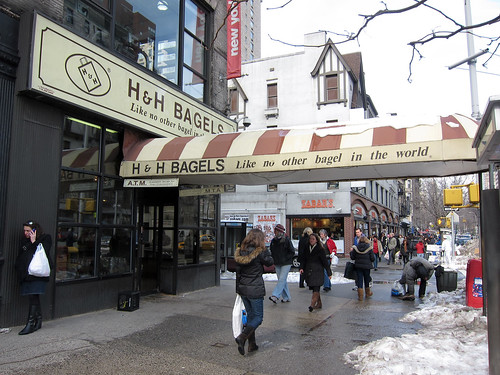As an historian, my stock in trade is change. Chronicling and analyzing how one thing gives way to another is what I do for a living, day in and day out. But taking the measure of Clio’s slings and arrows is one thing; actually experiencing them is quite another. When the forces of change affect me personally, dispassion goes out the window.

Bagel cognoscenti might debate the merits of H & H’s offerings -- some palates fond them far too doughy, others just right -- but for me, the modest little storefront stood for something larger than a rounded piece of dough heaped with “everything.”
It represented the multiple ways in which a certain kind of Jewishness -- a decidedly vernacular, easy-going and undemanding form of Jewishness, at that -- found a place for itself within the urban landscape and within the deeper reaches of American culture.
Along with appetizing stores and kosher (or kosher-style) delicatessens and other Jewish food purveyors that once peppered the city street, the bagel shop brought about a sea change in what Americans ate for breakfast, lunch and dinner. Bagels became common fare. Expanding the American diet, the bagel also helped to expand, deepen and round out America’s relationship to its Jewish citizens.
I’ll miss my occasional bagel from H & H. But what I’ll miss even more is the history nestled within its little circular frame.

